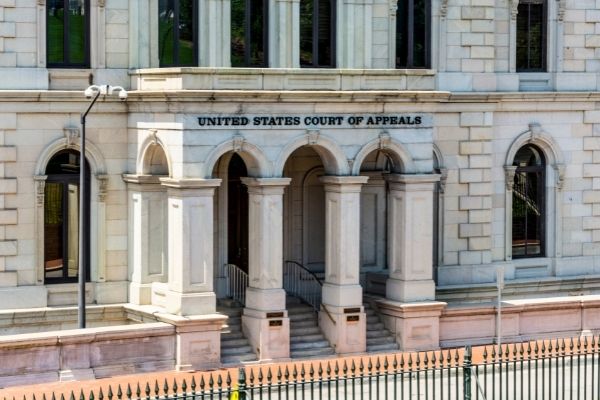Why Select Federal Appeal Lawyers: Proven Approaches for Successful Appeals
Wiki Article
Demystifying the Refine of Federal Appeals: What You Need to Know
Navigating the intricate realm of federal allures can frequently seem like going across undiscovered waters for those unfamiliar with the process. Comprehending the nuances of appellate court territory, the intricacies of filing a notice of charm, providing an engaging quick, and making a persuasive oral debate are important elements that can dramatically influence the end result of a case. By unraveling the layers of complexity surrounding federal appeals, people can acquire a clearer insight into the mechanisms that govern this vital stage of the legal system.Comprehending Federal Appeals Refine
Diving right into the detailed world of the government charms process reveals a structured and methodical trip through the judicial system - phoenix federal crime appeal lawyers. Federal appeals act as an essential device for evaluating choices made by reduced courts. Comprehending this process is necessary for anyone associated with lawful proceedings at the federal degreeThe procedure usually starts with an event dissatisfied with a reduced court's judgment filing a notice of charm. This activates a review by a higher court, where a panel of judges analyzes the lawful disagreements offered by both parties. Briefs describing the legal thinking behind each event's placement are submitted, and oral disagreements might be heard to clear up complex problems.
The appellate court's decision is based on a comprehensive evaluation of the lower court's process and the disagreements provided. When the appellate court reaches a decision, it can attest, turn around, remand, or customize the lower court's ruling, giving quality and finality to the lawful conflict.
Appellate Court Jurisdiction Discussed

Appellate courts have territory over details kinds of instances, normally those including legal mistakes, step-by-step problems, or inquiries of regulation instead of factual disagreements. The jurisdiction of appellate courts is generally laid out in laws and laws that control the court system. Recognizing appellate court jurisdiction is crucial for events included in the appeals procedure as it identifies whether a case is qualified for evaluation and the extent to which the appellate court can interfere in the lower court's choice.
Filing a Notification of Appeal
The preliminary action in commencing the government appeals process entails filing a Notification of Allure with the ideal appellate court. arizona federal appellate lawyer. This critical document formally alerts the court and the various other events entailed in the situation that the appealing celebration intends to look for a review of the lower court's choice. Submitting a Notice of Allure is a rigorous step-by-step need that sets the appellate procedure movingWhen preparing the Notification of Allure, it is important to make certain compliance with the details rules and standards of the pertinent appellate court. The document has to commonly consist of info such as the situation name, the reduced court's name, the read the article day of the judgment being appealed, and a succinct statement indicating the grounds for the charm.
Timeliness is essential when filing a Notice of Charm. Missing the due date for submitting this file can result in the allure being rejected, highlighting the importance of accurate and timely initiation of the appeals procedure. It is a good idea to seek lawful assistance to browse the complexities of submitting a Notice of Appeal successfully.
Briefing and Dental Argument
In the appellate procedure, presenting written briefs and participating in oral disagreements play pivotal duties in advocating for the appealing event's position prior to the appellate court. Briefs are comprehensive lawful documents that describe the events' disagreements, lawful authorities, and analysis sustaining their positions. These composed entries offer the court with a detailed understanding of the truths of the instance, the relevant legislation, and why the appealing event thinks the reduced court's choice must be overturned.Complying with the entry and review of the briefs, dental debates offer the celebrations a possibility to further clarify their positions, attend to any kind of questions the appellate judges might have, and emphasize key factors from their written briefs. Oral disagreements are an opportunity for the lawyers to encourage the judges through verbal campaigning for and responses to queries from the bench.

Getting the Appellate Court Decision

Final Thought
Recognizing the appellate court territory, submitting a notice of appeal, preparing briefs, and providing oral disagreements are all essential parts of this process. Ultimately, receiving the appellate court decision can offer clearness and resolution to lawful conflicts.As we advance from recognizing the government allures procedure to studying the details of appellate court territory, a basic facet comes to light regarding the authority and limits of these higher courts in the legal landscape. Appellate court territory refers to the scope of cases that a particular appellate court has the power to choose and evaluate upon. Unlike trial courts that listen to instances for the initial time, appellate courts are restricted to examining decisions made by lower courts. Understanding appellate court jurisdiction is crucial for parties entailed in the allures process as it determines whether a case is qualified for evaluation and the degree to which the appellate court can interfere in the reduced court's decision.
Whether the appellate court affirms, turns around, or remands the reduced court's decision, understanding the effects of the judgment is important for all parties involved in the appellate procedure.
Report this wiki page